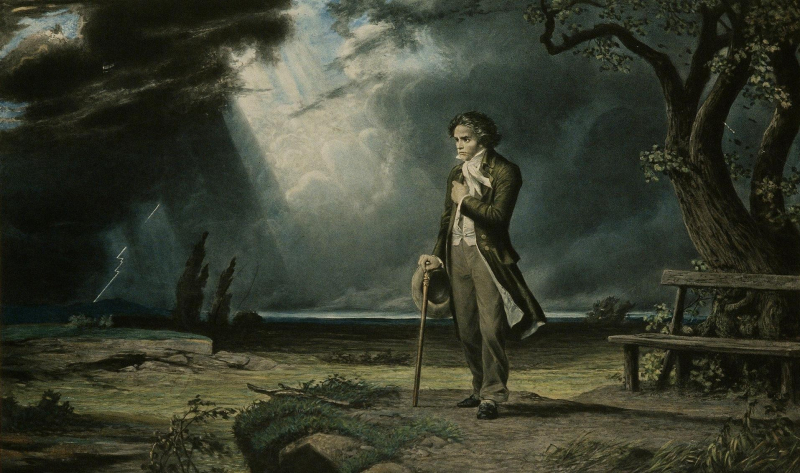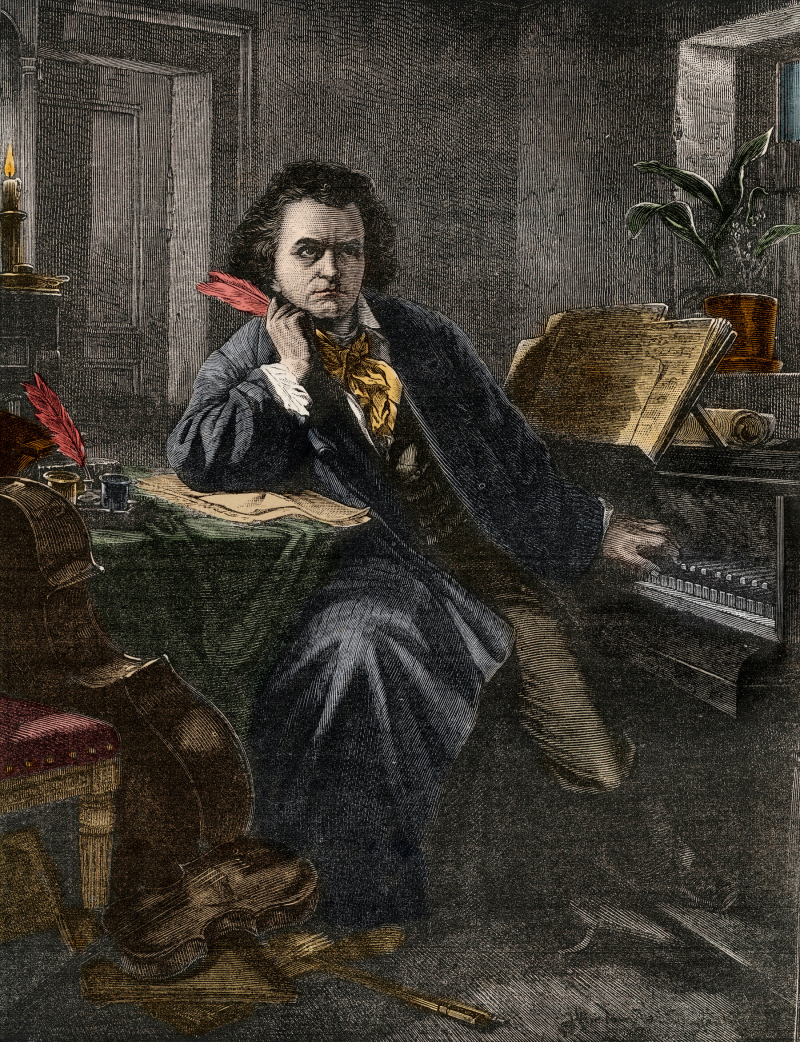Beethoven was deaf
This is one of the interesting facts about Ludwig van Beethoven that may surprise many people. The most significant musician since Mozart was thought to be the young Beethoven. He had studied with Haydn by the time he was in his mid-20s and was acclaimed as a superb, virtuoso pianist. He had written a few piano concertos, six string quartets, and his first symphony by the time he was 30. The potential of a lengthy, prosperous career was promising for the person, and everything was looking quite good for him. However, Beethoven first noticed buzzing and ringing in his ears at the age of 26. It has been hypothesized that childhood illnesses like smallpox or typhus were Beethoven's most likely cause of hearing loss. Beethoven made an effort to keep his closest friends and family from learning about the issue. If anyone found out, he felt his career would be destroyed. "For two years I have avoided almost all social gatherings because it is impossible for me to say to people 'I am deaf," he wrote. "If I belonged to any other profession it would be easier, but in my profession, it is a frightful state." One acquaintance is rumored to have cited Beethoven's final words, "I shall hear in heaven," on his deathbed.
Beethoven and fellow composer Ferdinand Ries were out for a stroll across the countryside when they came across a shepherd playing a pipe. Beethoven couldn't hear the lovely music, but he could tell by Ries's expression that it was playing. Beethoven allegedly never recovered from this experience since it was the first time he had faced his deafness head-on. According to reports, Beethoven could still hear some speech and music until 1812. But by the time he was 44, he was virtually deaf and unable to hear many of the noises of the beautiful landscape he loved. He must have felt terrible about it.
Beethoven was familiar with the sounds of instruments and vocals as well as how they interacted because he had heard and played music for the first thirty years of his life. He could always hear his compositions in his head because his deafness was a gradual decline rather than a sudden loss of hearing. As Beethoven's hearing deteriorated, his housekeepers said that he would sit at the piano, put a pencil in his mouth, and touch the pencil's other end to the soundboard to feel the vibration of the note. Higher notes were frequently used in Beethoven's early pieces since he could hear the whole spectrum of frequencies at that time. He started using the lower notes when his hearing grew worse so he could hear better. During this time, Mozart composed the Moonlight Sonata, his sole opera Fidelio, six symphonies, and other pieces. Near the end of his life, the high notes started to appear again in his compositions, which suggests he was hearing the pieces come to life in his head.










